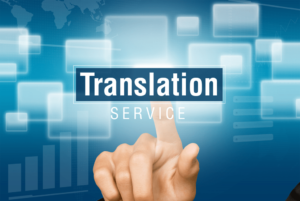Qualities Required For A Professional Farsi Interpreter Dubai

In a diverse and multicultural city like Dubai, effective communication is of paramount importance for businesses and individuals alike. If you have a language barrier, especially a Farsi language barrier, hiring a professional interpreter is essential. However, not all interpreters are the same. To ensure smooth communication and avoid misunderstandings, it is important to understand the qualities required of a professional Farsi interpreter in Dubai.
Table of Contents
- Interpreting experience
- Native language skills in Farsi and excellent English skills
- Cultural competency
- Professional conduct and ethics
- Adaptability and quick thinking
- Good communication skills
- Technical ability
- Conclusion
- FAQ
- How can I find a professional Farsi interpreter in Dubai?
- What qualifications should I look for in a professional interpreter?
- How can I assess the quality of interpreting services?
- What common challenges do interpreters face?
- How can I ensure confidentiality during my interpretation session?
- What role does technology play in interpretation services?
Interpreting experience
It is important to find a professional Farsi interpreter Dubai with extensive experience. Experienced interpreters hone their skills through a variety of scenarios, allowing them to deal with different situations, nuances, and challenges that may arise during an interpretation session. Whether it’s simultaneous or consecutive interpretation, our experienced interpreters can easily handle complex interactions and ensure accurate and effective communication.
Native language skills in Farsi and excellent English skills
Native Farsi fluency and knowledge of English are the basic qualities expected of a professional interpreter. A deep understanding of both languages allows interpreters to convey messages accurately, maintain cultural nuances, and effectively bridge communication gaps. This ensures that the interpretation stays true to the original message while ensuring clarity and consistency for all involved.
Cultural competency
Cultural competency is essential for professional interpreters, especially in an international city like Dubai. Interpreters need to go beyond language skills to have a deep understanding of the cultural nuances and etiquette associated with both the Farsi language and the local context. This allows you to seamlessly navigate sensitive topics, cultural references, and social nuances, promoting mutual respect and understanding between all parties.
Professional conduct and ethics
Professional interpreters in Dubai are required to adhere to the highest standards of conduct and ethics. Trustworthiness, confidentiality, and impartiality must be demonstrated throughout the interpretation process. Maintaining neutrality and confidentiality is important to ensure that all parties feel comfortable and are free to express their ideas without fear of misrepresentation or invasion of privacy.
Adaptability and quick thinking
Adaptability and quick thinking are essential qualities in the dynamic environment of interpreting. Professional interpreters often face unexpected challenges, such as technical problems, language ambiguity, and rapid changes in conversation topics. The ability to think quickly, adapt to changing situations, and remain calm under pressure is essential to providing a smooth interpretation service.
Good communication skills
In addition to language skills, good communication skills are essential for a professional Farsi interpreter in Dubai. Clear expression, active listening, and effective verbal and nonverbal communication are paramount to accurately conveying your message and building trust with all involved. Experienced interpreters can conduct complex conversations, clarify uncertainties, and ensure mutual understanding between different people.
Technical ability
In today’s digital age, technical skills are becoming increasingly important for professional legal translation services interpreters. Familiarity with interpreting equipment, software, and digital platforms increases efficiency and effectiveness during interpreting sessions. Whether it’s video conferencing tools or specialized interpreting software, tech-savvy interpreters can leverage technology to facilitate smooth, seamless communication.
Conclusion
Hiring a professional Farsi interpreter in Dubai requires careful consideration of several important qualities. From experience and language skills to cultural competency and technical proficiency, each aspect plays an important role in ensuring effective communication across language and cultural barriers. By prioritizing these qualities, individuals in your businesses can find the right interpreter to facilitate seamless communication and foster meaningful connections in diverse and dynamic environments.

FAQ
How can I find a professional Farsi interpreter in Dubai?
You can find a professional Farsi interpreter in Dubai by contacting a trusted interpreting agency, networking with relevant communities, or finding reliable information You should seek recommendations from sources. Additionally, online platforms and directories dedicated to interpreting services can be valuable resources for connecting with qualified interpreters.
What qualifications should I look for in a professional interpreter?
When looking for a professional interpreter, you should have a relevant degree or certification in the field of interpretation, extensive experience in the field, and a native speaker of the target language (Farsi). Look for qualifications such as fluency, source language (English) proficiency, and interpreter. Deep understanding of cultural nuances.
How can I assess the quality of interpreting services?
When assessing the quality of interpreting legal translation services, you should assess factors such as accuracy, clarity, cultural sensitivity, professionalism, and reliability. By obtaining references, conducting interviews, and observing sample interpretation sessions, you can gain insight into the interpreter’s skills and suitability for your specific needs.
What common challenges do interpreters face?
Interpreters face language ambiguities, cultural differences, technical issues, rapid speaking, overlapping conversations, managing emotions during sensitive conversations, and often face challenges. Developing effective coping strategies, ongoing training, and staying informed of industry trends can help interpreters overcome these challenges.
How can I ensure confidentiality during my interpretation session?
To ensure confidentiality during interpretation sessions, work with interpreters who adhere to professional ethics codes and confidentiality agreements. Also, provide clear instructions on how to handle sensitive information, and ensure that meetings are not recorded or shared without the prior consent of all parties involved.
What role does technology play in interpretation services?
Technology plays an important role in modern interpreting services, enabling video conferencing, interpretation software, remote interpretation through digital platforms, real-time transcription, and multilingual communication. It’s easy. Using technology effectively allows interpreters to improve the efficiency, accessibility, and overall quality of their interpretation services.







